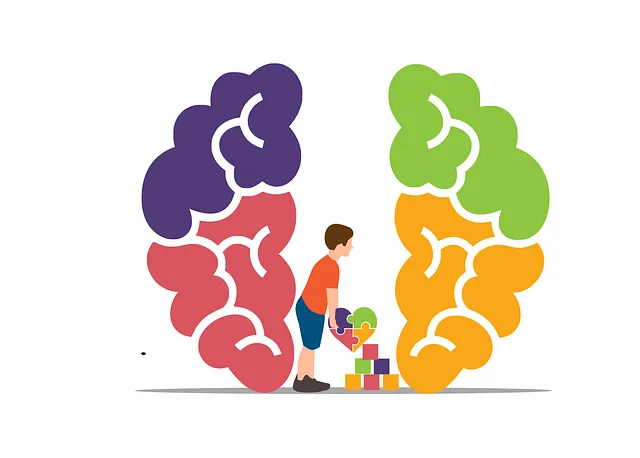The stigma surrounding mental illness creates significant barriers for individuals seeking support, leading to avoidance of help due to fear of judgment. This internalized shame and societal perceptions prevent access to critical care, hindering recovery. Organizations like Longmont Kaiser Permanente play a crucial role by offering tailored services, a confidential mental health phone line, counseling, and support groups, promoting understanding and empowering individuals to prioritize their mental wellness. Community outreach programs, education campaigns, and sharing success stories are essential in reducing stigma, normalizing discussions about mental health, and ensuring everyone has access to necessary resources for improved well-being.
Mental illness stigma continues to hinder individuals from seeking necessary care. This article explores diverse strategies aimed at reducing this barrier, including understanding the profound impact of stigma on those struggling with their mental health and access to resources like the supportive services offered by Longmont Kaiser Permanente. We delve into community engagement approaches, the transformative power of education and awareness campaigns, and the inspiring stories of recovery that foster a more inclusive society. For support, contact the Longmont Kaiser Permanente mental health phone number.
- Understanding Stigma and Its Impact on Mental Health Seekers
- Longmont Kaiser Permanente: A Resource for Supportive Care
- Strategies to Reduce Stigma in Community Engagement
- The Power of Education and Awareness Campaigns
- Celebrating Recovery: Sharing Success Stories for Inspiration
Understanding Stigma and Its Impact on Mental Health Seekers

Stigma surrounding mental illness can have profound effects on individuals seeking support and treatment. Often, those struggling with their mental health avoid reaching out for help due to fear of judgment or discrimination. This internalized shame and external societal perceptions create a barrier to accessing critical care, ultimately hindering recovery and overall well-being. The impact is especially significant in communities where resources like the Longmont Kaiser Permanente mental health phone number may not be readily available or promoted.
Understanding stigma as a social construct that influences behavior is essential. It manifests in various ways, from casual discrimination to more severe forms of exclusion. Community outreach programs and the development of mental wellness coaching can play a pivotal role in reducing this stigma. By fostering open conversations, educating the public, and providing accessible support systems, these initiatives work towards creating an environment where individuals feel comfortable discussing their experiences without fear of rejection, thus encouraging them to prioritize their mental wellness.
Longmont Kaiser Permanente: A Resource for Supportive Care

Longmont Kaiser Permanente stands as a beacon of hope and support for individuals navigating mental illness. This healthcare organization offers a comprehensive range of services tailored to address various mental health concerns, with a strong focus on stigma reduction efforts. Their dedicated team provides not just treatment but also education and resources to empower patients in their journey towards recovery.
Through innovative programs and accessible initiatives, Longmont Kaiser Permanente fosters an environment that encourages open dialogue about mental well-being. They offer confidential counseling services, support groups, and even a dedicated mental health phone line, making it easier for individuals to connect with the care they need. By promoting understanding and self-care, this healthcare provider plays a vital role in building inner strength and boosting confidence among those facing mental illness challenges.
Strategies to Reduce Stigma in Community Engagement

In the fight against mental illness stigma, community engagement plays a pivotal role. One effective strategy is to foster open conversations about mental health within local gatherings and events. Organizations like Longmont Kaiser Permanente can lead by example by offering their mental health phone number prominently, encouraging residents to reach out for support without fear of judgment. Public awareness campaigns developed with this initiative in mind can help educate the community on the signs of common mental health issues, promoting early intervention and reducing the severity of symptoms.
Additionally, resilience-building workshops and programs can empower individuals to cope with stress more effectively, fostering a culture of understanding and support. By integrating these strategies into community life, stigma reduction efforts become normalized, creating an environment where people feel safe discussing their mental health journeys openly. This collective approach ensures that everyone has access to the resources they need, ultimately improving overall well-being.
The Power of Education and Awareness Campaigns

Mental illness stigma reduction starts with education and awareness campaigns that empower individuals to understand and support one another. Organizations like Longmont Kaiser Permanente play a vital role by offering resources and programs focused on mental health, such as phone numbers for easy access to care (Longmont Kaiser Permanente mental health phone number). These initiatives break down barriers and provide a safe space for conversations about mental well-being.
Through workshops centered around stress management, resilience building, and depression prevention, communities can foster an environment where individuals feel less stigmatized. By educating the public on recognizing symptoms, differentiating between normal emotional responses and mental illness, and promoting support systems, these campaigns contribute to a more inclusive society.
Celebrating Recovery: Sharing Success Stories for Inspiration

Sharing success stories is a powerful tool in reducing the stigma surrounding mental illness. By highlighting individuals who have overcome challenges and achieved recovery, we can inspire hope and understanding within communities. These narratives provide tangible evidence that mental health issues are treatable, and recovery is attainable. Longmont Kaiser Permanente’s mental health phone number serves as a vital resource for those seeking support, offering access to professional guidance and fostering a sense of connection.
Celebrating recovery stories encourages open dialogue about mental well-being, emphasizing the importance of resilience building and emotional well-being promotion techniques. Such initiatives can facilitate risk assessments for mental health professionals, ensuring individuals receive the appropriate care and support. These positive examples contribute to a more inclusive and supportive environment, breaking down barriers and promoting a culture where mental health is prioritized and discussed openly.
Mental illness stigma reduction is a multifaceted approach, as evidenced by initiatives like Longmont Kaiser Permanente’s supportive care services and community engagement strategies. Education and awareness campaigns play a pivotal role in dispelling misconceptions, while sharing recovery stories offers hope and inspiration. By combining these efforts, we can create a more inclusive society that supports those facing mental health challenges, ultimately encouraging them to seek help without fear of judgment. For personalized guidance, individuals can reach out to Longmont Kaiser Permanente via their mental health phone number.





